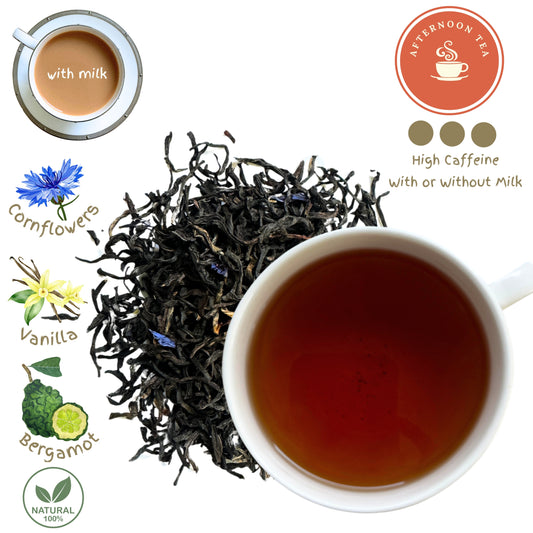Sri Lanka, renowned for its Ceylon tea, has a deep-rooted connection with the majestic tea leaf. With over 10 percent of its population deriving income from the tea industry, it's no surprise that this sector is vital to the nation's economy, generating over $1.2 billion in export revenues in 2020. Central to this industry for over a century has been the traditional tea auction, a ritualistic affair where buyers and brokers gathered twice a week at the Ceylon Chamber of Commerce to trade Sri Lanka's finest leaves.
However, when the COVID-19 pandemic hit, this centuries-old tradition faced an unprecedented challenge. The global health crisis disrupted the tea auction, rendering in-person bidding impossible and leaving plantations and factories without a means to sell their products. With millions at risk of losing their livelihoods, the Sri Lankan tea industry was compelled to reimagine its auction system.
Anil Cooke, CEO of Asia Siyaka Commodities, spearheaded the digitalization efforts, recognizing the urgency of the situation. Collaborating with stakeholders across the industry, including the Sri Lanka Tea Board, technical experts, and government officials, the task force embarked on a mission to digitize the auction process.
Drawing on the expertise of local IT company CICRA Holdings, the team developed an online auction platform that replicated the nuanced dynamics of the live auction. This involved training brokers to interpret the complexities of in-person bidding while leveraging deep knowledge of tea categories and grades.
Within a matter of days, the digital auction platform was ready to go live. On April 4, 2020, history was made as the first-ever digital tea auction took place in Sri Lanka. Not only did this new system ensure compliance with COVID-19 safety measures, but it also proved to be faster, more strategic, and cost-effective than its traditional counterpart.
Challenges Faced by the Traditional Tea Auction System
Prior to the pandemic, the Ceylon Tea Auction operated through in-person bidding sessions, where buyers would gather in a physical auction room to inspect samples and place their bids. However, the onset of the global health crisis brought about unprecedented disruptions to this age-old practice. Restrictions on gatherings and travel limitations made it increasingly challenging for buyers and sellers to participate in the auction process, threatening the smooth operation of the tea trade.
Moreover, the traditional auction system was inherently inefficient and time-consuming, with manual paperwork and logistical hurdles adding to the complexity. The need for a more streamlined and resilient approach became apparent, prompting the tea industry to explore digital solutions to ensure business continuity in the face of adversity.
Impact and Benefits of Digitization of Tea Auctioning in Sri Lanka
The benefits of digitization were immediately evident. The online auction platform facilitated uninterrupted sales, ensuring the continuity of operations for tea estates like the Dessford Tea Estate. Workers like A. Rajakumari, a hand-harvester, continued to receive their salaries, providing stability for families during uncertain times.
But the digital transformation didn't stop there. Concurrently, the Ceylon Tea Auction underwent its own evolution. Prior to the pandemic, the auction relied on in-person bidding sessions, a process that became untenable in the face of travel restrictions and social distancing guidelines.
Recognizing the need for a more resilient approach, stakeholders within the industry embraced digital technologies to modernize the auction process. This involved the development of online auction platforms and the implementation of digital payment systems, enabling buyers to participate remotely and conduct transactions seamlessly.
The digitization efforts yielded numerous benefits for the industry. By eliminating geographical barriers, the online auction expanded market reach and accessibility, attracting international buyers and bolstering the global reputation of Sri Lankan tea. Moreover, the transition to digital platforms improved operational efficiency, reduced paperwork, and provided real-time insights into market trends, empowering stakeholders to make informed decisions.
Looking ahead, the digital transformation of Sri Lanka's tea industry holds immense promise for the future. By embracing innovation and leveraging technology, stakeholders have ensured the resilience and sustainability of one of the nation's most cherished commodities. As Sri Lanka continues to navigate the challenges of the modern world, its tea industry stands as a shining example of how tradition and technology can converge to shape a brighter tomorrow.










